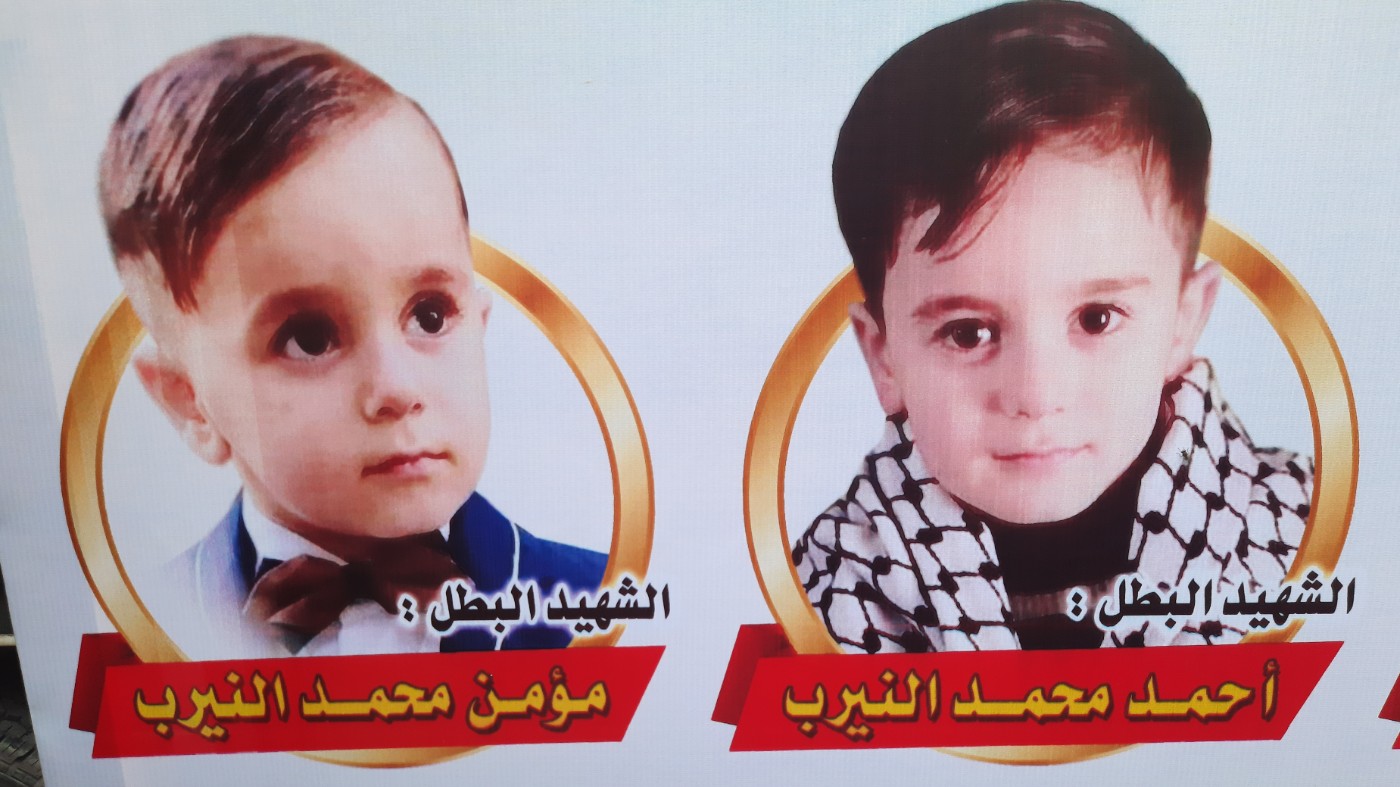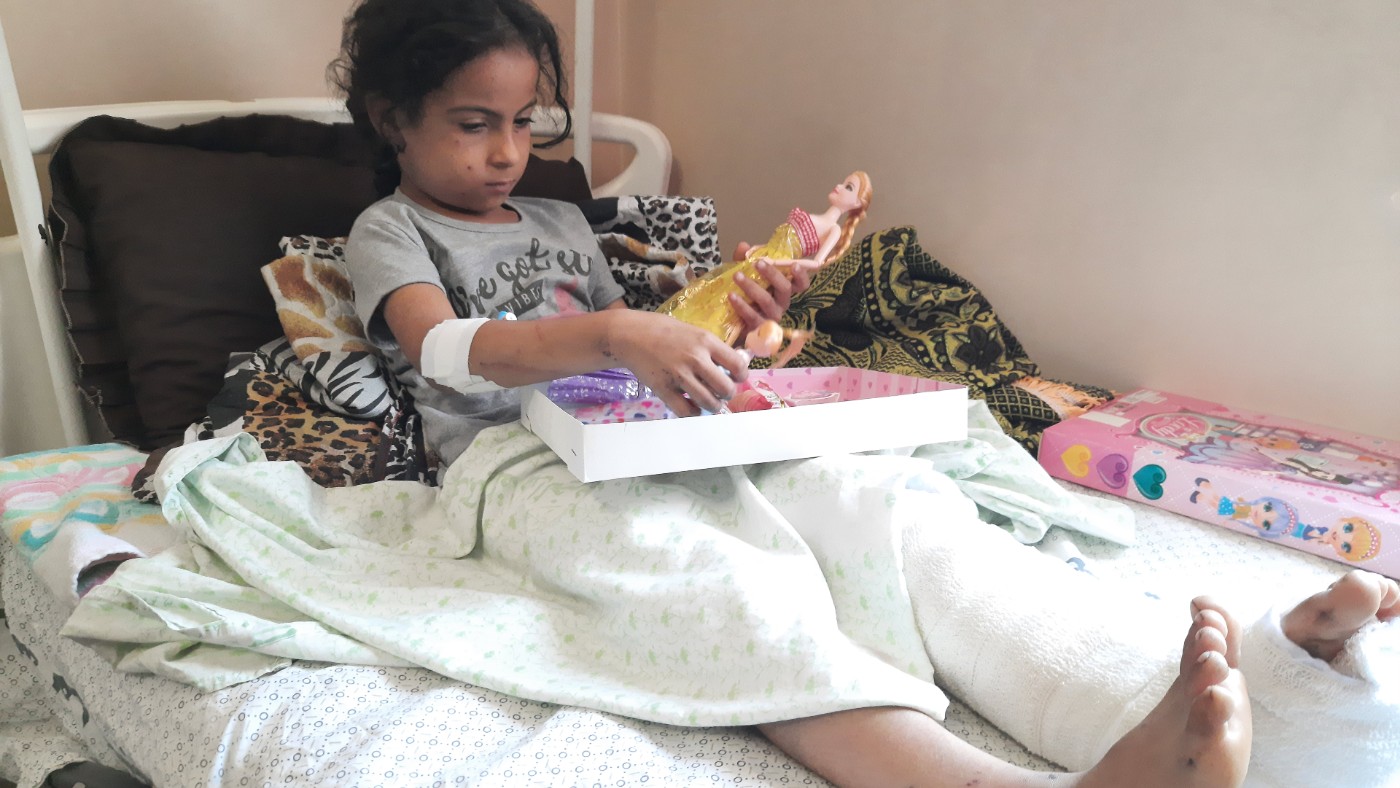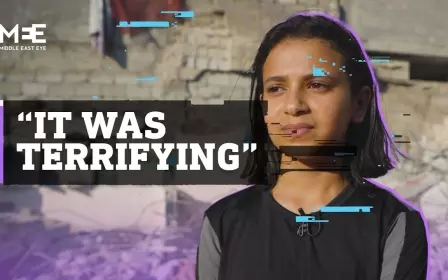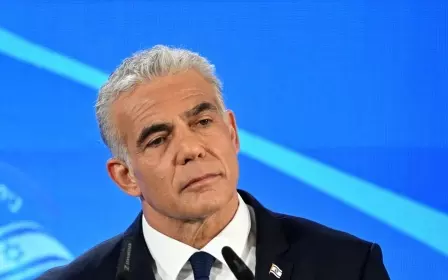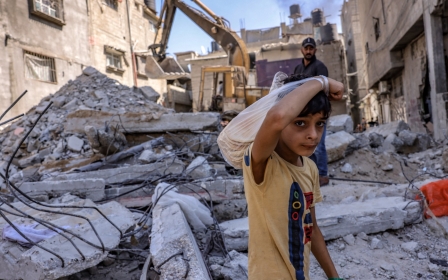Gaza: The Palestinian children who went to their local shop and never came back
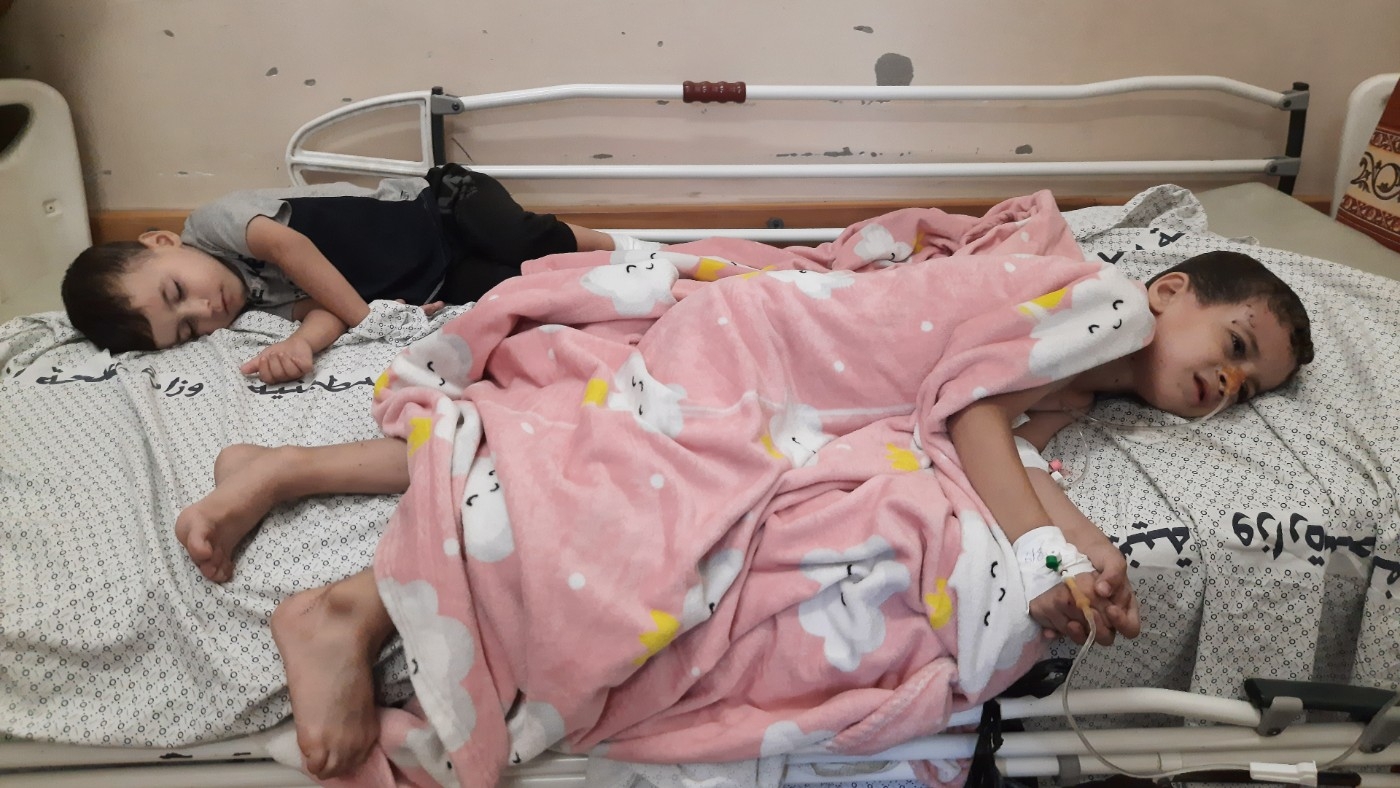
The family had their last dinner at 8.45pm on Saturday. Ahmed al-Nairab, 11, and his five-year-old brother Momen then asked their father, Mohammed, to take them to the small grocery store next to their house in Jabalia Camp, northern Gaza.
At the shop they bought crisps and gum. Then Mohammed al-Nairab saw a huge ball of fire and heard a massive explosion.
“I couldn’t see anything. When the smoke started to disappear, I found Momen lying on the ground, covered with blood,” the 38-year-old father told Middle East Eye. “I bore him quickly in my arms and started running to find a car or ambulance. After many metres, I found Ahmed also lying on the ground.
'I used to not allow them to leave the house during an assault. I used to be scared of everything for them'
- Mohammed al-Nairab, father
"Someone held Ahmed. We ran together for almost 200 metres. Then we found a car full of injured people, whose trunk was open and contained two or three bodies, heading to the Indonesian Hospital in Jabalia. We put Ahmed and Momen in the trunk. I didn't know if they were dead or injured," he said.
Minutes later, another car came by, heading to the same hospital. Mohammed al-Nairab got in.
“When I arrived at the hospital, I found them shrouding Ahmed. After a short period, they told me Momen had passed away as well,” Nairab told Middle East Eye at the funeral of his children.
Now a father of just two children, he said: “I used to not allow them to leave the house during an assault. I used to be scared of everything for them.”
Ahmed and Momen both liked swimming. They were supposed to go to the pool on Friday 5 August, when Israel started its military assault on Gaza, killing Islamic Jihad military leader Tayseer Jabari in a residential tower in central Gaza.
The blast killed seven Palestinians, including four children. It left 15 people injured. The three-day onslaught, which was brought to a halt by an Egypt-brokered ceasefire on the evening of Sunday 7 August, left 44 Palestinians - including 15 children - dead and 360 injured, including 151 children.
Ibrahim al-Nimnim, who works in the grocery store the family went to just before the attack took place, told MEE that all of the four children killed in Jabalia on 6 August had bought different children's stuff there, including gum, crisps and cola.
"After a few minutes, I heard a loud blast. There was broken glass everywhere. I hid under the table and stayed for a while. Then I heard shouting, so I looked from the door and found many dead bodies on the ground,” Nimnim, who is still in a state of shock and terror, and whose small grocery shop was heavily damaged, told MEE.
Mohammed Abu Shykan was also taking his two children, six-year-old Osama and four-year-old Ahmed, to the same grocery shop at the time of the assault.
“After they left the house, I heard a blast. I didn't imagine this could be a rocket. Our neighbourhood is densely populated and safe,” his wife, who asked not to be named, told MEE.
“Then I heard shouting. I ran to see my children and husband. I didn't find them. I was told they had been injured and transferred to the hospital,” she said, as she sat next to her injured children on the ward.
“When I reached the hospital, I found all of them covered in blood. My husband was immediately rushed into the operating room and the two children had shrapnel in every part of their body, particularly in their bellies.”
Thirty-three-year-old Abu Shykan’s injury was in the chest and he was treated in the intensive care unit. He and his children are both now in a stable condition.
“I registered Osama in the first grade at school last month and bought him the school uniform and stationery. Two days ago, he showed me a picture of clothes posted on Facebook and said: ‘Mama, I wanted an outfit like this’,” the mother of two said as she burst into tears. “What should I do? They are lying on the same hospital bed now.”
In the next room, Wesam Rajab, 18, was showing her eight-year-old sister a short comedy video to help take her mind off the pain.
“All of my seven-member family were praying in eastern Gaza. While kneeling in the third raka'a, an Israeli raid hit our flat and left all of them injured,” Wesam told MEE at the hospital.
“My father's injury is serious and he is still in intensive care. My brother, mother and twin sisters are stable,” she said. "All of us are still in the hospital, except my two older sisters, who left yesterday. They are living at my uncle's house, as ours is destroyed.”
After closing the video, Sara, the eight-year old, played with some plastic toys.
“I was praying with Baba, Mama, and my sisters,” she said. “A rocket hit us and I fell on the ground. Baba started shouting. My brother Hasan's face was covered with blood. Mama held me and went down the stairs. Then ambulances came.”
After hugging a succession of mourners at the funeral of his two children, Mohammed al-Nairab sat down next to a large photo of them. “I registered Momen last month at school. I was supposed to buy him the school uniform and a new bag next week,” he told MEE, his voice breaking.
“I took him to the school he had been waiting for. He used to ask me: ‘Baba, when will you buy me a new bag and stationery?’ Today is Momen's birthday. May they rest in peace.”
Middle East Eye propose une couverture et une analyse indépendantes et incomparables du Moyen-Orient, de l’Afrique du Nord et d’autres régions du monde. Pour en savoir plus sur la reprise de ce contenu et les frais qui s’appliquent, veuillez remplir ce formulaire [en anglais]. Pour en savoir plus sur MEE, cliquez ici [en anglais].


